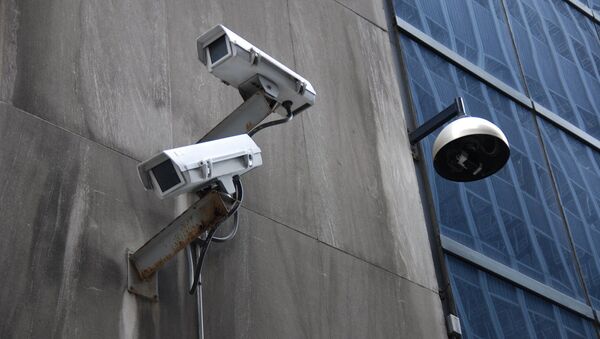A privacy advisory committee designed to reign in the use of cameras, stingrays, and other surveillance technology may in the works in the next few months to draft an expansive city ordinance.
“What’s significant here is that the new ordinance will cover all surveillance equipment regardless of whether it was paid by federal, state, local, or private funds, and [it] will cover all new models of technologies,” Matt Cagle, a technology and civil liberties attorney with the ACLU of Northern California, told the Guardian.
An 11-member team of activists called the DAC Privacy Committee has been fighting to limit the expansion of the Oakland Domain Awareness Center, a planned surveillance hub which intends to monitor both public and private cameras and sensors installed all over the city.
In 2014, the Oakland City Council voted to restrict DAC to a port-focused operation and removed traffic cameras from the project.
“This was shortly after the Occupy Oakland movement in 2012 and in 2013; the city’s plan was to link more than 700 surveillance cameras throughout the city, license plate readers [LPRs], shot spotters and other surveillance equipment into a system where law enforcement could have consistent and real-time access to the data,” former civil rights lawyer Brian Hofer told the Guardian, explaining DAC’s original purpose.
On June 2 a policy drafted by the DAC Privacy Committee and its list of recommendations were approved by the city council. The recommendations included a list of scenarios wherein the surveillance system would be activated, such as hostage situations at the port, and the requirement that DAC would designate a chief privacy officer who would report to city council on a regular basis.
The group also recommended the development of a citywide surveillance technology ordinance to cover all equipment, regardless of who bought it.
Their efforts, if successful, will give Oakland the most robust surveillance ordinance in the country, and could pave the way for activists in other cities to push for their own privacy reforms as well.
“Once the citywide ordinance passes, we can go back and develop strong use policies for stingrays and license plate readers, which Oakland police already use,” Hofer told the Guardian.
In a report of expert findings as to the effectiveness of surveillance cameras, the ACLU found that video surveillance has little to no positive impact on crime deterrence.
A study conducted by the University of Southern California, which used the LAPD's COMPSTAT figures to determine pre and post installation crime rates as well as arrest records, similarly found surveillance had no significant impact on crime rates in Los Angeles.
Additionally, a study conducted by UK-based criminologists found that fear of being victimized by crime did not change significantly before or after surveillance cameras were installed in the 14 sites they surveyed.






